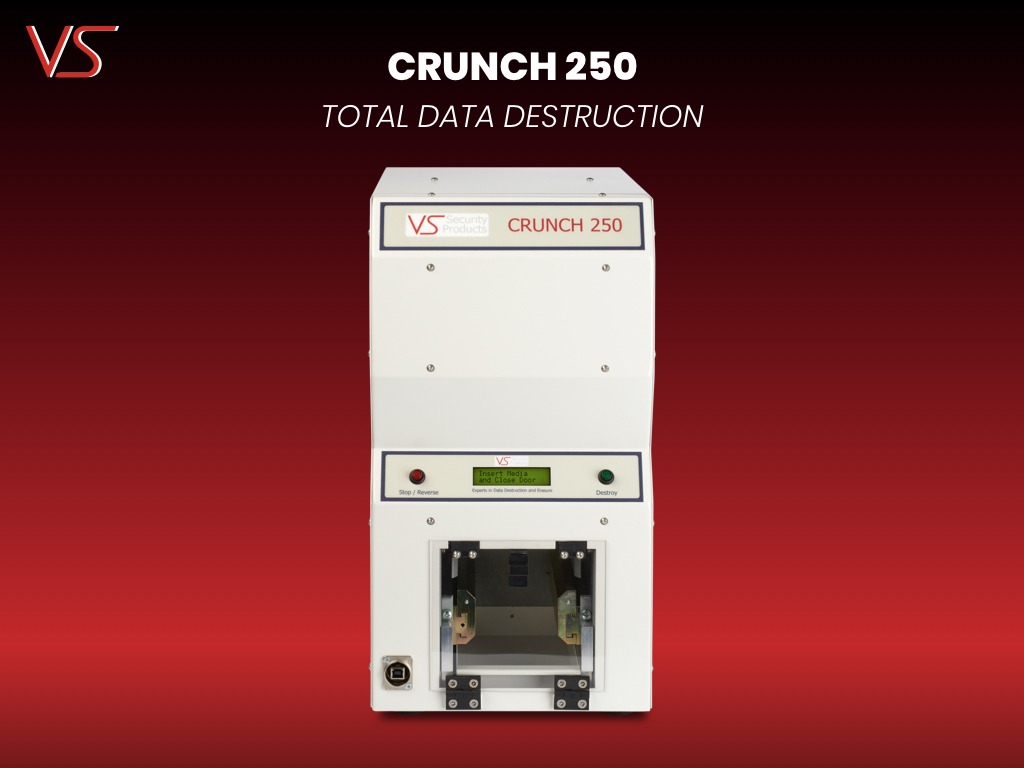Data Destruction Transparency for Web Hosting Services

As businesses increasingly rely on cloud services to manage and store their data, the responsibility of web hosting platforms like Azure, Amazon Web Services (AWS), and Google Cloud has expanded beyond uptime and infrastructure. One of the most critical, yet often overlooked, aspects of these services is how they handle the secure disposal of data once it reaches its end of life. Transparency in data destruction practices is now essential, particularly as regulatory environments worldwide become more stringent.
Data Destruction: An Integral Part of Corporate Data Policies
Web hosting providers are not just custodians of active data but also legacy data that businesses may no longer need but must dispose of securely. Cloud platforms serve a vast number of industries, including healthcare, finance, and retail, all of which are governed by strict data privacy regulations. When servers and storage devices in data centers reach the end of their life cycle, secure data destruction must form a key part of corporate data policies.
Laws such as HIPAA in the U.S., GDPR in Europe, CCPA in California, and guidelines from NIST ensure that organizations are accountable for how data is handled, even when it is no longer needed. In particular, these regulations mandate that businesses must permanently destroy customer data to prevent recovery. Failure to comply can lead to substantial financial penalties and reputational damage.
– HIPAA (Health Insurance Portability and Accountability Act): Applies to any entity dealing with personal health information (PHI). HIPAA mandates the proper destruction of both physical and digital PHI to safeguard patient privacy.
– FTC regulations: Govern the protection of consumer information and include specific guidance on how financial data and consumer reports must be disposed of securely.
– NIST SP 800–88: The National Institute of Standards and Technology provides detailed guidelines for media sanitization and data destruction, recommending techniques like degaussing and shredding for complete eradication of data.
– GDPR (General Data Protection Regulation): This European law requires companies to permanently erase personal data when it is no longer needed, ensuring compliance with the “right to be forgotten.”
– CCPA (California Consumer Privacy Act): Much like GDPR, this law stipulates that businesses must ensure the secure destruction of personal data to avoid breaches.
In addition to these well-known regulations, countries like India, China, and Singapore have implemented data protection laws that impose similar obligations on how data is stored, handled, and destroyed. In India, the Information Technology Act includes provisions around data security, while China’s Data Security Law (DSL) mandates strict data governance and destruction practices. In Singapore, the Personal Data Protection Act (PDPA) also enforces stringent rules on data destruction.
The Role of Data Destruction Auditing
To stay compliant with these laws, data destruction must be auditable. Hosting services should be able to provide verifiable records that prove customer data was permanently destroyed. This ensures that companies can present a clear audit trail, which can be essential in the event of a security incident or audit by regulatory authorities.
Data destruction certificates, generated by some data destruction equipment, offer this level of transparency. Such certificates document when and how storage devices were destroyed, providing both hosting providers and their clients with legal proof of compliance.
For web hosting companies, maintaining an auditable and transparent data destruction process is critical, as it provides customers with peace of mind that their sensitive data is secure even at the end of its lifecycle. These certificates can serve as a key part of data audits, helping companies demonstrate compliance with data protection regulations.
Securing End-of-Life Hard Drives: Degaussing and Shredding
When it comes to securely destroying data from end-of-life HDDs (hard disk drives) and SSDs (solid-state drives), degaussing and shredding are the most effective methods. Traditional wiping techniques are no longer sufficient due to the advanced recovery techniques available today. Physical destruction ensures data is completely irretrievable.
– Degaussing: This method is suitable for magnetic media like HDDs. It uses a strong magnetic field to disrupt the data stored on the drive, making it unreadable. Data destroyers like the NSA-listed SDD Master are particularly useful for large data centers and hosting companies. These machines provide total data destruction through electromagnetic pulses, leaving no trace of recoverable data. The SDD Master can handle high volumes of drives, making it an ideal solution for large-scale operations.
– Shredding: SSDs store data in a different way, which means they cannot be degaussed. Instead, shredding is the recommended method for securely destroying SSDs. Devices like the MediaGone 500 physically destroy the drives, breaking them down into small, unreadable micro-particles. This process ensures no data can be recovered, even using advanced forensic techniques.
These solutions not only destroy data securely but also offer integrated data auditing capabilities. For example, both the SDD Master and MediaGone 500 come equipped with the ability to generate data destruction certificates, which help hosting companies document the destruction process and ensure transparency.
The Benefits of Data Destruction Transparency for Hosting Services
1. Increased Security: Proper data destruction practices mitigate the risk of data breaches by ensuring that no recoverable data remains on discarded drives. Web hosting companies that invest in secure destruction methods build more resilient infrastructures that protect both their clients and their own operations.
2. Enhanced Customer Trust: Clients are increasingly aware of the importance of data privacy and are more likely to stay with service providers that can demonstrate transparent data handling practices. By adopting robust data destruction protocols, hosting companies can boost customer confidence and satisfaction, knowing that their data is protected even after it is no longer needed.
3. Compliance with Data Privacy Laws: Hosting providers who integrate on-site data destruction and auditing into their operations are better positioned to meet the requirements of international data privacy regulations. This reduces the risk of regulatory penalties and helps avoid costly breaches that could damage the provider’s reputation.
4. Reduced Long-Term Risk: By using certified solutions like the SDD Master and MediaGone 500, web hosting services can ensure data is permanently destroyed before drives are recycled or disposed of. This reduces the risk of sensitive data being recovered by unauthorized entities, a growing concern in today’s digital landscape.
On-Site Data Destruction: The Key to Hosting Security
While many hosting providers rely on third-party services for data destruction, on-site destruction offers a higher level of security and control. By keeping the destruction process in-house, web hosting companies can ensure that no data leaves their premises until it is irreversibly destroyed. This eliminates the risk associated with transporting sensitive drives to off-site facilities.
Having the capability for on-site data destruction also allows hosting providers to handle high volumes of drives more efficiently, ensuring that they can keep up with the growing demand for secure data disposal in a timely manner.
Integrating Data Destruction Transparency
In today’s data-centric world, transparency in data destruction is critical for web hosting companies. By adopting solutions like the SDD Master and MediaGone 500, hosting providers can ensure the secure destruction of end-of-life drives, protect customer data, and maintain compliance with global regulations like HIPAA, GDPR, and CCPA. Offering transparent data destruction practices will not only enhance security but also boost customer trust and reduce long-term risks for hosting services, ensuring they remain competitive and compliant in an increasingly regulated digital world.
If you are seeking to improve your organization’s data transparency and destruction capabilities, get in contact with one of our experts who can guide you on a suitable setup for your business: [email protected]
Photo credit: Hazel Z


